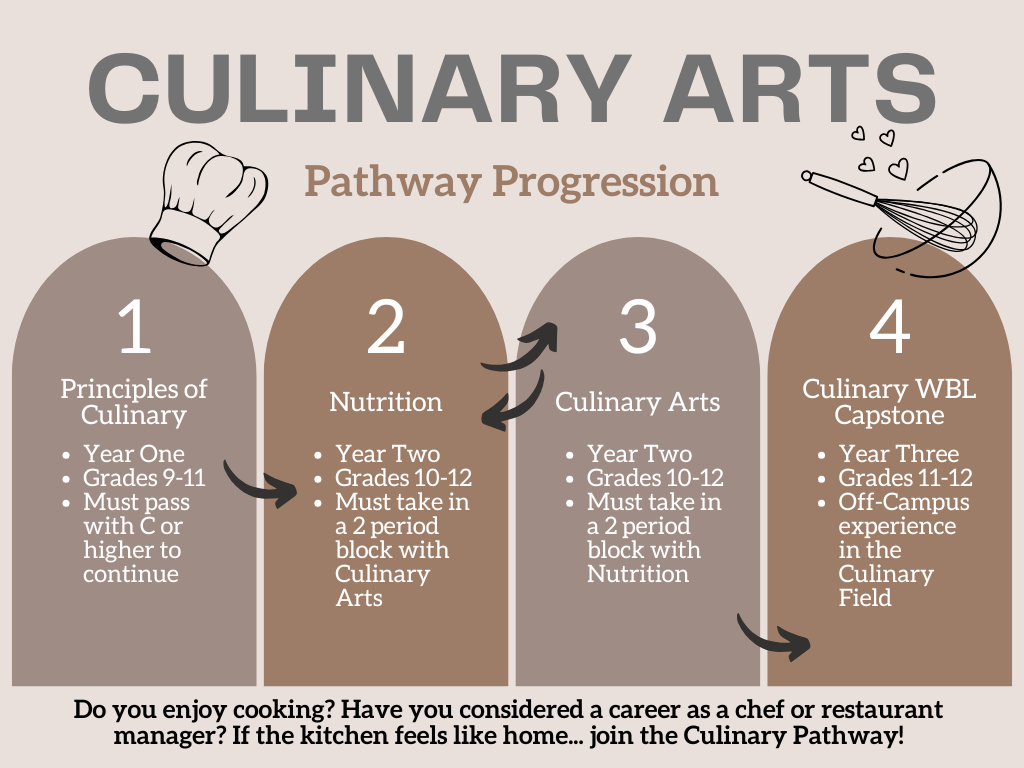Culinary Arts

Program Overview: Courses included in this pathway are Principles of Culinary and Hospitality, Nutrition, and Culinary Arts.
Students develop an understanding of the hospitality industry and career opportunities, and responsibilities in the food service and lodging industry. They are introduced to procedures for decision making which affects operation management, products, labor, and revenue.
Additionally, students learn the fundamentals of food preparation, basic principles of sanitation, service procedures, and safety practices in the food service industry including proper operation techniques for equipment. They also learn the characteristics, functions and food sources of the major nutrient groups and how to maximize nutrient retention in food preparation and storage. Students will be made aware of nutrient needs throughout the life cycle and to apply those principles to menu planning, food preparation and planning nutrient dense meals for specific situations or examining nutritional needs of student athletes. Students also learn to prepare the four major stocks, the five mother sauces (in addition to smaller sauces) and various soups. They also develop skills in classical cooking methods. Students also produce yeast goods, pies, cakes, cookies, and quick breads.
Culinary Capstone: Students interested in pursuing a capstone experience could continue their training in a work experience through one of our partner organizations. Students enrolled in the capstone will also be expected to complete post-secondary training and/or certifications.
Certifications: There is potential to earn Serv Safe - Food Manager certification through the capstone course.
Partner Organizations:
Connection to future career path (this list is not exhaustive): Sous chef, Prep cook, Line cook, Pastry chef, Fish chef, Vegetable chef, Meat chef, Head cook
Post-Secondary Options (this list is not exhaustive): Culinary School
See https://www.onetonline.org/find/quick?s=culinary+arts for more information.